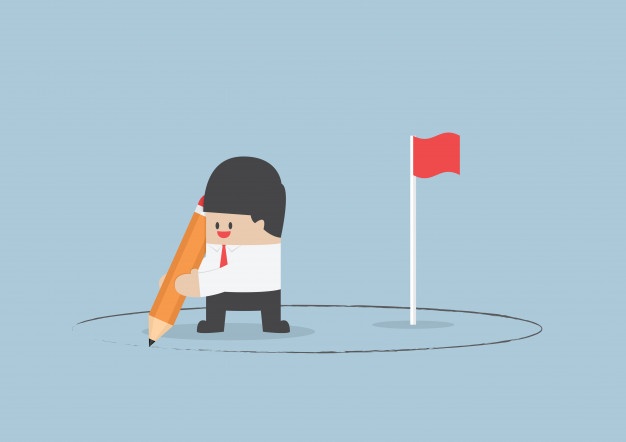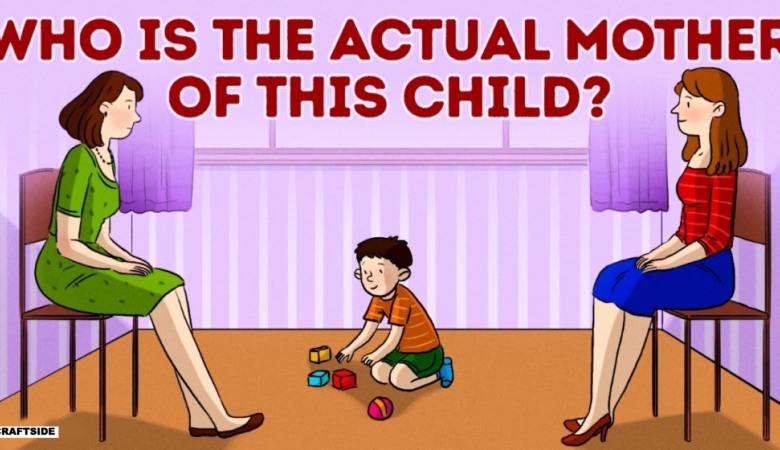In today’s fast-paced world, many individuals unknowingly adopt psychological habits that can keep them trapped in a cycle of financial struggle and isolation. Whether it’s people-pleasing, excessive self-blame, or an inability to set boundaries, these habits can severely impact your personal and professional life. Understanding these behaviors and learning how to overcome them is key to achieving financial independence, improved mental health, and more fulfilling relationships.
In this comprehensive guide, we explore 5 Psychological Habits That Make a Person Poor and Lonely. We will delve into how these habits sabotage your self-improvement efforts and offer actionable strategies to break free from these patterns. Whether you’re looking for self-help tips, relationship advice, or ways to enhance your money mindset, the insights shared here will help you reclaim control over your life and build a more positive future.
For additional expert advice on psychological health and personal boundaries, consider exploring reputable resources like Psychology Today, Mayo Clinic, and MindTools.
You Can’t Say No: The Cost of People-Pleasing

One of the most debilitating psychological habits is the inability to say no. When you constantly agree to others’ requests, even at the expense of your own time and resources, you set the stage for burnout and financial instability. Overcommitting can lead to a lack of focus on your own goals and ultimately leave you feeling depleted and isolated.
How Not Saying No Affects Your Life:
- Financial Consequences: By always accommodating others, you may neglect opportunities that could advance your career or business. This people-pleasing behavior can prevent you from negotiating better deals or investing in yourself.
- Emotional Drain: Constantly prioritising others’ needs can leave you emotionally exhausted. Over time, this can lead to stress, anxiety, and even depression.
- Loss of Identity: When you’re always saying yes, you may lose sight of your personal goals and values. This loss of identity can leave you feeling lonely and disconnected from who you truly are.
Strategies to Start Saying No:
- Set Clear Priorities: Identify what matters most to you—whether it’s career advancement, personal health, or relationships—and let these priorities guide your decisions.
- Practice Assertiveness: Learn to express your needs and limitations confidently. Assertiveness training can be a powerful tool in overcoming the habit of overcommitting.
- Use Delayed Responses: Instead of agreeing immediately, give yourself time to consider the request. Phrases like “Let me think about it” can help you avoid impulsively saying yes.
- Seek Professional Guidance: If saying no feels nearly impossible, consider consulting with a therapist or coach who specialises in assertiveness and boundary-setting.
For more practical advice on assertiveness and managing people-pleasing behavior, check out this Psychology Today article on the power of saying no.
You’re Looking For Approval: The Downside of Constant Validation Seeking

Constantly seeking approval is another psychological habit that can keep you trapped in a cycle of loneliness and financial stagnation. When your self-worth is tied to the opinions of others, you may find yourself making decisions that aren’t in your best interest—often for the sake of maintaining social approval.
The Impact of Approval-Seeking Behavior:
- Stunted Personal Growth: Over-reliance on external validation can prevent you from developing a strong internal sense of self-worth. Without this, you might be less likely to pursue your true passions and opportunities for advancement.
- Financial Risks: Approval-seeking can lead to impulsive spending or poor investment decisions as you try to impress others or maintain a particular image.
- Relationship Strain: Constantly looking for validation can put pressure on your relationships. Friends, family, or partners may feel burdened by your need for constant reassurance, ultimately leading to feelings of isolation.
Tips to Cultivate Self-Approval:
- Develop Self-Awareness: Reflect on your core values and what truly makes you happy. Journaling or meditation can help you connect with your inner self.
- Celebrate Small Wins: Acknowledge your achievements without waiting for external recognition. This practice can build your self-esteem and reduce your reliance on others for validation.
- Set Personal Goals: Define success on your own terms. Whether it’s financial independence, career growth, or personal development, focus on goals that resonate with you rather than what others expect.
- Invest in Self-Improvement: Consider reading self-help books, attending workshops, or working with a coach to strengthen your internal validation.
For further reading on building self-esteem and reducing the need for external approval, visit MindTools’ self-improvement resources.
You Smooth Things Over: The Pitfall of Avoiding Conflict at All Costs

While being a peacemaker can be a positive trait, over-smoothing things over—especially when it means avoiding necessary conflict—can be detrimental. This habit often leads to unresolved issues and built-up resentment, both of which can contribute to a sense of isolation and even financial loss.
Why Constant Conflict Avoidance Hurts You:
- Unresolved Issues: Avoiding confrontation can mean that problems never get fully addressed. Over time, these issues can erode trust and damage relationships.
- Missed Opportunities: Whether in business negotiations or personal relationships, failure to address conflict head-on can result in missed opportunities for growth and improvement.
- Emotional Buildup: Bottling up your feelings can lead to increased stress and anxiety, which negatively impacts both your mental health and overall productivity.
How to Address Conflict Constructively:
- Embrace Healthy Disagreement: Recognise that conflict can be an opportunity for growth. Approaching disagreements with an open mind can lead to innovative solutions and improved relationships.
- Develop Communication Skills: Effective communication is key to resolving conflicts. Techniques such as active listening and assertive expression can help you navigate difficult conversations.
- Establish a Conflict Resolution Strategy: Having a plan in place for how to deal with conflicts can make the process less intimidating. This might involve setting clear boundaries and agreeing on conflict resolution methods with friends, family, or colleagues.
- Seek Mediation: In some cases, it might be helpful to involve a neutral third party, such as a therapist or mediator, to facilitate the resolution process.
To learn more about managing conflict effectively, read this Mayo Clinic guide on communication and conflict resolution.
You Blame Yourself for Other People’s Emotions: The Toxic Cycle of Self-Blame

Self-blame is a destructive habit that not only erodes your self-esteem but also hinders your ability to form healthy relationships. When you assume responsibility for other people’s emotions, you invite unnecessary guilt and self-doubt, which can leave you feeling isolated and unworthy of success.
The Negative Effects of Excessive Self-Blame:
- Damaged Self-Esteem: Constantly blaming yourself for things beyond your control can lead to a persistent sense of inadequacy. This low self-esteem can, in turn, affect your career, relationships, and overall happiness.
- Emotional Burnout: The weight of unwarranted guilt can be overwhelming, leading to stress, anxiety, and even depression.
- Strained Relationships: When you take on responsibility for others’ emotions, you may inadvertently enable manipulative behavior. This dynamic can result in unbalanced, unhealthy relationships where your needs are consistently overlooked.
Strategies to Break the Cycle of Self-Blame:
- Recognise Your Limits: Understand that you are not responsible for other people’s feelings. Each individual is accountable for their own emotional well-being.
- Practice Self-Compassion: Treat yourself with the same kindness and understanding you would offer a friend. Self-compassion can help you overcome the harsh internal critic that fuels self-blame.
- Seek Professional Support: Therapy or counseling can provide a safe space to explore these feelings and develop healthier coping mechanisms.
- Set Realistic Expectations: Acknowledge that perfection is unattainable and that mistakes are part of being human. This mindset shift can reduce the tendency to over-criticise yourself.
For further insights into overcoming self-blame and building a healthier self-image, consider this article from Psychology Today on self-compassion.
You Don’t Set Boundaries: How Lack of Boundaries Undermines Success

Failing to set clear personal and professional boundaries can leave you vulnerable to exploitation and burnout. Without boundaries, you may find yourself overwhelmed by the demands of others, leading to chronic stress and a diminished quality of life. This lack of structure is a major contributor to both financial instability and loneliness.
The Importance of Setting Healthy Boundaries:
- Protecting Your Time and Energy: Boundaries help you manage your time effectively, ensuring that you have the energy to focus on your personal goals and well-being.
- Enhancing Relationships: When you clearly define what is acceptable in your relationships, you foster mutual respect and trust. Healthy boundaries enable you to nurture relationships without sacrificing your own needs.
- Improving Financial Stability: Setting limits on how much time and resources you commit to others can free you up to pursue opportunities that lead to professional growth and financial independence.
- Boosting Self-Esteem: Establishing boundaries is a powerful act of self-care. It signals to both yourself and others that you value your well-being and are willing to stand up for your needs.
Tips for Effective Boundary-Setting:
- Know Your Limits: Reflect on your priorities and what you are willing to tolerate in your personal and professional life. Clarity is key when it comes to setting boundaries.
- Communicate Clearly: Be direct and assertive when discussing your boundaries. Use “I” statements to express your needs without placing blame.
- Be Consistent: Consistency reinforces your boundaries. When you maintain them over time, people are more likely to respect your limits.
- Practice Self-Care: Remember that setting boundaries is part of a larger self-care strategy. Prioritise your mental and physical health by saying no when necessary.
- Seek Support: If you find it challenging to establish boundaries, consider talking to a counselor or joining a support group focused on self-improvement and assertiveness.
For more detailed strategies on boundary-setting and personal empowerment, explore MindTools’ guide to setting boundaries.
Conclusion
Your psychological habits play a pivotal role in shaping your financial success and personal happiness. By addressing the habits that keep you trapped in a cycle of people-pleasing, constant approval-seeking, conflict avoidance, self-blame, and poor boundary-setting, you pave the way for a richer, more fulfilling life. Each of these behaviors can be modified with self-awareness, effective communication, and a commitment to self-improvement.
Remember, change doesn’t happen overnight. It requires time, patience, and a willingness to confront deeply ingrained patterns. Start by setting small, manageable goals—like practicing assertiveness in low-stakes situations or dedicating time each day to self-reflection. Over time, these incremental changes can lead to significant improvements in your mental health, relationships, and financial stability.
Embrace the journey of self-improvement with the knowledge that every step you take brings you closer to a life free from the constraints of these damaging habits. Whether you’re looking for relationship advice, personal growth strategies, or financial empowerment tips, remember that building healthy boundaries and prioritising your well-being is the foundation for lasting success.
For ongoing support and additional resources on self-help and mental health, be sure to check out trusted websites such as Psychology Today, Mayo Clinic, and MindTools. Their expert insights can provide further guidance as you continue to transform your life.
By recognising and overcoming these 5 psychological habits, you can break free from a cycle that leads to financial struggle and isolation. Instead, you can build a future marked by personal empowerment, financial independence, and genuine, fulfilling relationships. Take control of your narrative today and start building the life you deserve.
Happy self-improvement journey, and here’s to a brighter, more confident, and connected future!









Leave a Reply